5. Friday Night Lights (2006 – 2011)
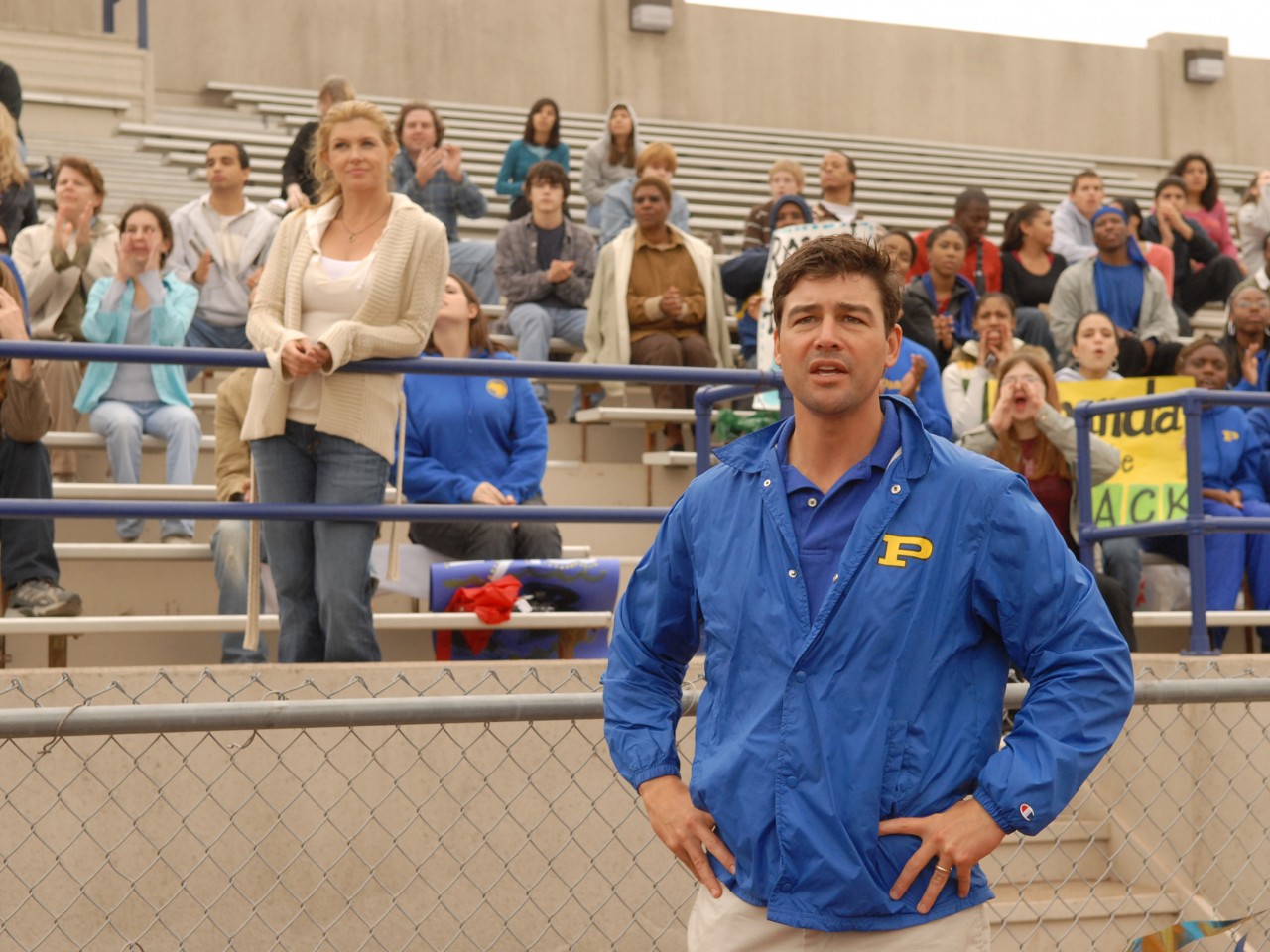
Director Peter Berg’s 2004 football movie was a carefully made, emotional affair that got a surprisingly low-key reception. The filmmaker felt there was plenty of potential to be mined from the material even after its showing; adapted from the detailed non-fiction source book, Berg had always been deterred by dropping so many subplots to fit the feature format and knew TV was the exciting way to go forward.
Carrying over several cast members and the distinct naturalistic style of the movie, the TV show managed to take what was great about its source and make it even better; having the time to explore the characters’ lives in-depth on the field as well as off, it gave the ordeal stronger stakes and higher drama.
Also impressively improved was the central partnership between coach Kyle Chandler and wife Connie Britton (reprising her role from the film), a sadly short-changed yet inciting aspect of the film that on the small screen stands as one of the most believable and involved on-screen marriages.
The show had always been a critical success, yet it was a series that constantly struggled with ratings, and a limp second season made it teeter on the edge of cancellation. Despite all that, the small yet dedicated and vocal following the team received on the show was parallel to its viewers in reality, helping proceedings get a three following seasons of peak storytelling. It’s true what they say – full hearts, clear eyes, never lose.
4. Hannibal (2013 – 2015)
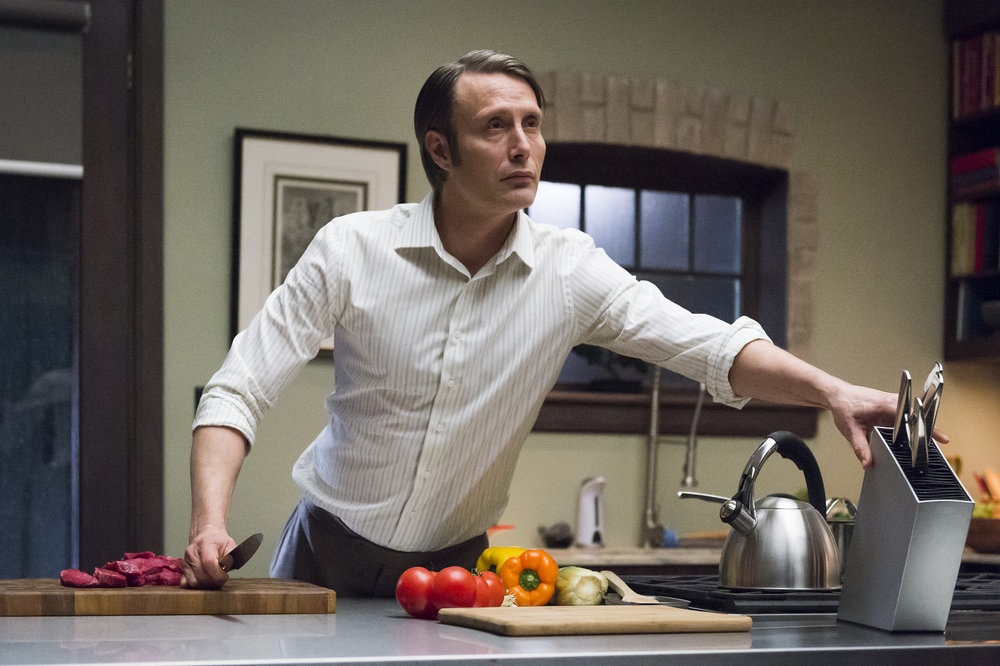
Taking Thomas Harris’s ‘Hannibal Lecter’ series, which had an already highly-regarded reputation, and turning it into a NBC procedure show, sounded like a recipe for outright disaster and it most likely would’ve been if for not one vital element – unique showrunner Bryan Fuller.
Fuller had a staunch reputation for creating beautiful, arresting shows that stood out from the crowd, even if they had a habit of getting killed all too soon (e.g. “Pushing Daisies”, “Wonderfalls”). His match with the material resulted in a suitably macabre and visually stunning tale that might be his most successful TV run to date (even though it was cancelled in its third season).
Starting off as a bizarre procedure show that began to fascinatingly morph into something much more dark and unique by its midpoint, it dropped its episodic formula and delved into the complex dynamic between Hannibal (Mads Mikkelsen) and his bipolar friendship with Will Graham (Hugh Dancy).
Mikkelsen did the impossible by taking on the iconic role forever overshadowed by Anthony Hopkins’ epic portrayal, and managed to make it completely his own, with a shark-like deadpan and physical agility uniquely imprinted on the role. He was ably accompanied by a colorful cast including Laurence Fishburne, Michael Pitt, and Gillian Anderson, yet it was his multilayered chemistry with the conflicted Dancy that really elevated the show; a backwards love story, cemented by its compelling lead performances.
Fuller brought an exciting element to proceedings by twisting the familiar and creating its own exciting world from the source material; it would delve into iconic scenes and storylines whilst still taking its own fresh and surprising route. Sure, it’s overly psychedelic spin on the ‘Hannibal’ plotline faltered at points, but it’s rendition of “Red Dragon” might be the best to date.
Fuller and cast are ready to return to the show on a moments notice if a streaming company can give them the greenlight for a continuation, but if this was the last word on his take, it made for a dark and delicious ride that stands remarkably strong next to its film counterparts and had a cracker of an ending to boot.
3. Westworld (2016 -)
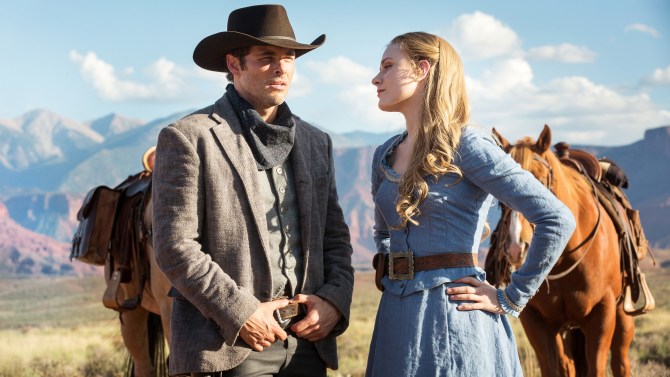
After countless delays and behind-the-scenes turmoil with HBO suffering dire times, “Westworld” had a lot going against it. Even if the source material was hardly gospel (Michael Crichton’s 1973 forgotten genre effort), the heavy influences it cast on countless other blockbuster’s in its wake (“The Terminator”, “Jurassic Park”, etc) certainly made the story on paper feel like a road well traveled.
Add to that a possibly nauseating mix of genres – western, sci-fi, horror, existential drama – and expectations were worried, to say the least. Then, it premiered and blew away all negative connotations.
Showrunners Jonathan Nolan and Lisa Joy only use the film’s premise of the ultimate theme park as its jump point; the wish fulfillment fantasy certainly grabs our attention, but it’s the twisty plot and haunting thematics of what makes us human that linger after the glorious sex and violence have passed. Also surprising is that regardless of the dense mythology and heady mind puzzles, the show is never frustrating, revealing just as much as it withholds.
It’s still early days for the series and we don’t know if it will stumble in its sophomore season. Still, it must be commended for its first effort for successfully juggling epic scale, heady writing, and a playful inventiveness in a exhilarating but equally darkly disturbing storyline that results in must-watch television.
2. Fargo (2014 -)
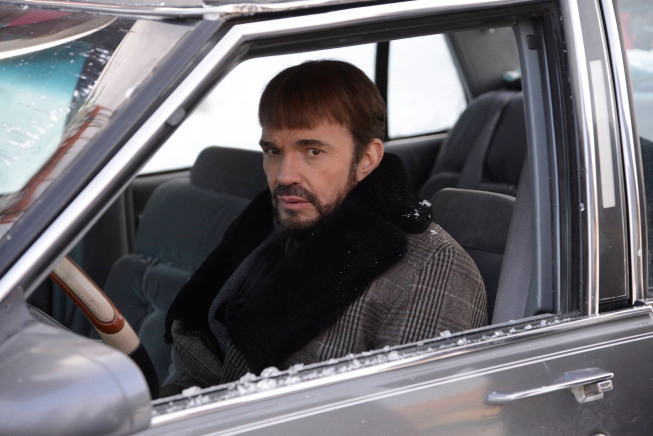
The Coen brothers’ individual filmmaking brand is one high pedigree to replicate, but that still that doesn’t keep some from trying, considering this is not the first attempt to turn their 1996 kettle-black crime/comedy into a television show (there was also a failed 2003 pilot). In this case, though, the second time’s the charm.
Not much was expected from said effort, so most were surprised when the first season succeeded quite handsomely; it lifted similar characters and situations from the movie, plus lovingly referenced the rest of the Coen’s filmography with clever nods. Somehow, it was not a case of simply aping a formula as the clever plot took off in fresh, alternative directions regardless of familiarity, and showcasing some fine storytelling with an adaptation that was better than it had any right to be.
Yet, it was really with season two where things came into its own; charting a messy gang war in the icy white landscapes of 70’s Minnesota, its anthology formula is a compelling move were showrunner Noah Hawley could finally stand on his two legs as a strong individual storyteller.
Any reservations about his reliance on the film’s trademarks were shrugged off, and it stands as one of the most compelling current television show running, that has, in some aspects, surpassed it’s film counterpart.
1. Buffy The Vampire Slayer (1997 – 2003)
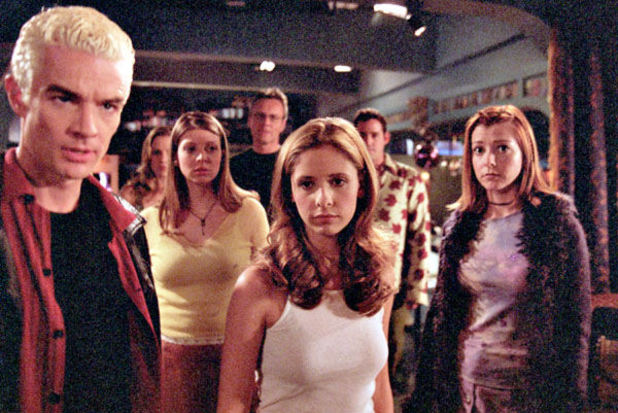
The big daddy of movies-to-TV “Buffy” was such a colossal television phenomena that it’s easy to forget it was initially based off a 1992 Kristy Swanson flop. That film’s screenwriter (and future A-list powerhouse) Joss Whedon knew its potential shouldn’t be squandered, and smartly reinvented it for the small screen.
Sure, its effects and action scenes are dated today, but that was never the show’s true strengths; its cast and writing were always the true show-stoppers and they’re still as strong as ever. Sarah Michelle Gellar catapulted to fame in the titular role, but like most Whedon serials, it was the supporting characters that tended to steal the limelight and created one of the most unbreakable ensemble groups on TV to date.
It also had a dynamite writer’s room, so it’s no wonder that it was the show that created tons of showrunners (Drew Goddard, Steven S. DeKnight, Marti Noxon – the list is endless) with its clever ‘growing pains as a horror movie’ allegory only taking the show so far. It was in its unique inventiveness and penchant for investing in protagonists that had the audience willing to follow them anywhere (even through a crazy musical number or shocking paternal deaths).
It still stands as the milestone effort of the highly beloved Whedon, as his goofy sense of humor yet high emotional stakes never blended in a better balance than here, regardless of the fantastic work he’s done since.
It wasn’t all peaches and cream; like many 90’s genre shows, it pulled through a lukewarm first season before it found its audience, but that lead into an epic run that hardly faltered even up right up to its seventh and final season. It also created one of the strongest spin-offs of all time (“Angel”), and elevated TV genre shows into a much wider and respectable arena felt to this day.
With that said, “Buffy” has her rightful place on top of the the list because it achieved what most movie-to-TV adaptations can only dream of; it not only exceeded or surpassed its source material, but it trampled it into oblivion.